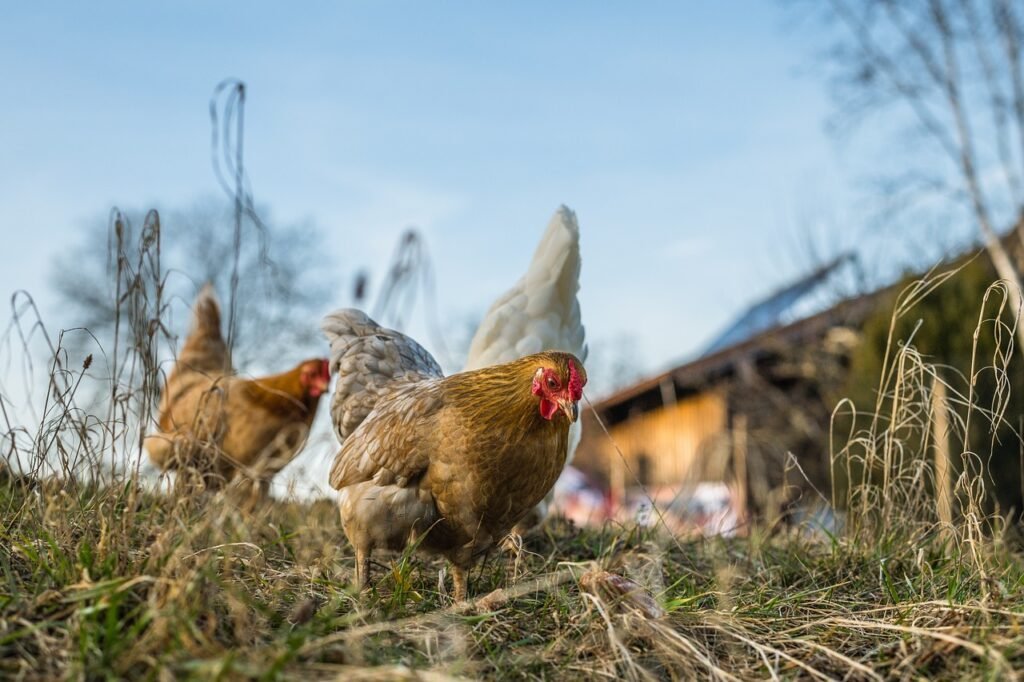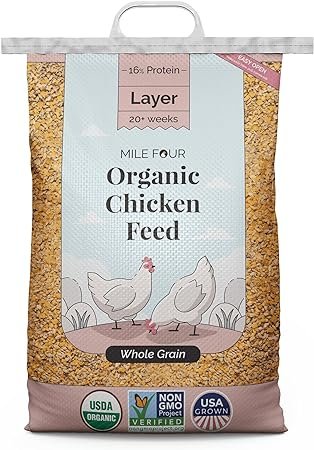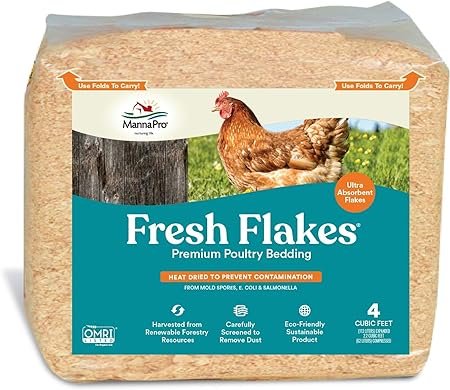Raising chickens is a great place to start when it comes to being self sufficient. Chickens provide you and your family with food as well as a means of disposal of left over kitchen waste. They also are key for your garden as chicken poop is rich in nutrients for all your gardens needs. Another great thing about chickens is they can be pretty efficient at eating the bugs around your yard.

In order to establish egg-laying chickens, consider the following steps:
Select Appropriate Breeds: Choose chicken breeds known for prolific egg production, such as Rhode Island Reds, Leghorns, or Sussex.
Provide a Coop: Build or purchase a secure and well-ventilated coop with nesting boxes for laying eggs.
Ensure Proper Space: Allow sufficient space for each chicken in the coop, providing at least 2-3 square feet per bird.
Set Up a Roosting Area: Install roosts for chickens to perch at night, ensuring they feel secure and comfortable.
Ensure Adequate Ventilation: Proper ventilation helps regulate temperature and prevents humidity buildup inside the coop.
Offer Nutritious Feed: Provide a balanced and nutritious chicken feed suitable for laying hens, containing essential nutrients like calcium and protein.
Access to Clean Water: Ensure a constant supply of clean and fresh water for the chickens.
Introduce Laying Boxes: Place nesting boxes with comfortable bedding to encourage hens to lay eggs in a designated area.
Establish a Lighting Schedule: Control the lighting to simulate natural daylight hours, typically 14-16 hours a day, to encourage consistent egg-laying.
Monitor Health: Regularly check the health of your chickens, watch for signs of illness, and provide necessary vaccinations.
Allow Outdoor Access: If possible, allow chickens to free-range or provide access to a secure outdoor area for exercise and foraging.
Collect Eggs Regularly: Collect eggs daily to prevent hens from becoming broody and to ensure they remain clean and fresh.
Keep a Clean Environment: Regularly clean the coop to maintain a healthy and hygienic living environment for the chickens. You can also go to your local recycle center and they may offer some cheap or even free mulch for your chickens!
Consider Companion Animals: Some chicken breeds benefit from companionship, so consider introducing more than one chicken to avoid loneliness.
Be Patient: It may take some time for chickens to start laying consistently. Be patient and provide the necessary care for optimal egg production.
This is a great over view start on raising some chickens! Each climate will provide its own challenges for your chickens. It is important to localize your knowledge on raising them in your area as well as making sure you are zoned to do so. Raising your own chickens will provide you and your family with chicken you know was raised right with a proper diet and no added hormones. Eggs are one of the most nutrient dense foods you can eat with the most efficient form of protein. The book that is linked below would really get your chicken journey going without a hitch!
This is a paid advertisement. The views and opinions expressed herein are solely those of the advertiser and do not necessarily reflect the views or opinions of the platform on which this advertisement is displayed. Any product claim, statistic, quote, or other representation about a product or service should be verified with the manufacturer, provider, or party in question.







Pingback: Top 10 Chicken Breeds for Homesteading - yourdailyhomestead.com